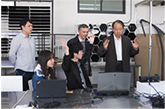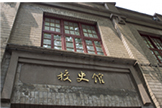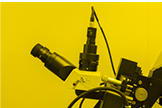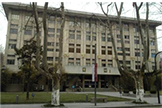
Speaker:Gu Zhongze (Yangtze river scholars Distinguished Professor, Dean of the School of Biological Science & Medical Engineering ofSEU)
Theme:HumanOrganChipsand Biomedical Big Data
Time:14:00, November 21, 2019 (Thursday)
Place:Humanities Lecture Hall inJiulonghuCampusofSEU(105 3rdClassroomBuilding)
Hostby:Academic Affairs Office of SEU
Undertakenby:Chien-Shiung WU College of SEU, Extracurricular Research Lecture Activity Guidance Center
Co-organizedby:Science and Technology Association ofChien-Shiung WU College of SEU
About the speaker
Prof. Gu Zhongze, Yangtze river scholars Distinguished Professor, National Outstanding Youth Fund winner and the Head of Ministry of Education Innovation Team an 111 Discipline Intellectual Base. In 1985, he entered the Junior College of Nanjing Institute of Technology (predecessor of Chien-Shiung WU College) and graduated from the University of Tokyo in 1998 with a doctorate in engineering. He is currently the Dean of the School of Biological Science & Medical Engineering of SEU and the Director of the Institute of Biomaterials and Medical Devices of Jiangsu Institute of Industrial Technology, and mainly engaged in human organ chip research. He has undertaken a number of scientific research projects such as the national key research and development plan and the National Natural Science Foundation. He has published more than 300 papers in international core journals, and he has beencited more than 10,000 papers. 45 patents were granted and 6 were transferred. The research results won 7 provincial and ministerial awards.
Reasons for recommendation
The human organ chip is an emerging technology that simulates the function of human organs by culturing cells in vitro. It can provide a model similar to the human environment for medical, pharmaceutical, and life science research, and provide data for alternative animal and clinical trials for drug discovery and screening, disease model building, and more. Due to its great application prospects, the technology was rated as one of the top ten emerging technologies by the 2016 Davos Forum. With the advantage of organ chips, researchers can systematically collect dynamic data of organs or tissues, and excavate new knowledge of genetic mutations, gene expression, cell-cell interactions, and temporal and spatial dynamic life processes between tissue cells and human organ function in real-time dynamic changes.Even through the organ chip platform, a series of multi-dimensional and cross-scale biological data such as physiological and pathological indicators of human tissue and organ levels and response to drugs can be obtained to construct a “digital life model” system.
















